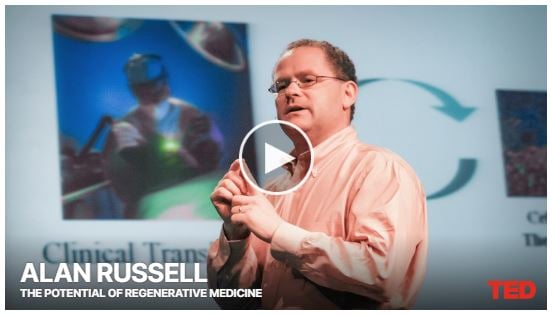Regenerative medicine promises a healthier workforce and increased quality of life. However, the introduction of regenerative therapies will require careful regulatory and technical considerations from both researchers and clinicians. In this blog post, we describe four informative TED Talks that explore the future of regenerative medicine and the limitations preventing its introduction.
1. The Potential of Regenerative Medicine
In this video, Alan Russell discusses the history and future of regenerative medicine, describing it as a key solution to the aging population, sick-care, and incurable diseases. He explores 3 key technologies that will contribute to this therapeutic revolution – including cell therapeutics, biomatierials, and smart devices – and highlights key examples of regenerative medicines in use today.
2. Growing New Organs
In Growing New Organs, Anthony Atala describes technologies that would allow humans to regenerate whole organs, and how this could resolve current issues faced by transplant networks. Anthony explains the science behind smart biomaterials and the challenges faced by researchers generating these technologies. He also explores biomaterials which help the body regenerate functional tissues and whole organs, presenting data from these clinical studies in humans.
3. Promises and Dangers of Stem Cell Therapies
In The promises and dangers of stem cell therapies, Dr Daniel Kota describes current hopes and concerns surrounding the clinical use of stem cell therapeutics. He describes the importance of appropriate regulations and expertise when considering the clinical introduction of these novel treatments and how they will benefit humanity.
4. Tissue Engineering for Regenerative Medicine
In this TED Talk, Warren Grayson describes how regenerative medicine will improve quality of life for patients who have lost tissues due to physical trauma. He describes the primitive treatments currently available for these patients, and explains how a combination of tissue scaffold and stem cell technologies could revolutionize the way we treat physical trauma.









